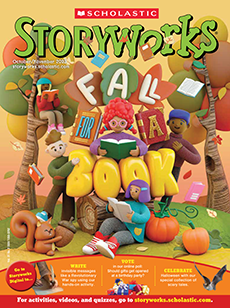Emmie knew just what she wanted for her 10th birthday: 24 friends, her favorite cake . . . and no presents. Instead of gifts, she asked her friends to bring coins, which she donated to a charity she cares about.
Emmie isn’t alone. More and more birthday girls and boys are giving up gifts so they can raise money to help people, animals, and other important causes.
Is this just a fad, or will the no-gift birthday party become a new tradition?
Emmie knew just what she wanted for her 10th birthday: 24 friends, her favorite cake, and no presents. Instead of gifts, she asked her friends to bring coins. She gave the coins to a charity she cares about.
Emmie isn’t alone. More and more kids are giving up birthday gifts so they can raise money for important causes.
Is this just a fad, or will the no-gift birthday party become a new tradition?
Emmie sabía justo lo que quería para su 10mo cumpleaños: 24 amigos, su pastel preferido... y ningún regalo. En vez de regalos, les pidió a sus amigos que trajeran monedas, que le donó a una institución benéfica que le importa. Emmie no es la única. Más y más niñas y niños cumpleañeros están renunciando a sus regalos para recaudar dinero para ayudar a personas, animales y otras causas importantes. ¿Se trata de una simple novedad, o las fiestas de cumpleaños sin regalos se convertirán en una nueva costumbre?

